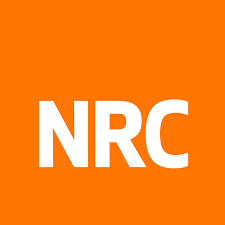JOB DESCRIPTION
Position: Information Counselling and Legal Assistance(ICLA) Coordinator
Reports to: Area Programme Manager
Supervision of: ICLA Staff
Duty station: Jigjiga Area Office
Travel: 50%
Project number: ETFM2301
Duration and type of contract: 11 Months and full time (national staff contract)
All NRC employees are expected to work in accordance with the organisation’s core values: dedication, innovation, inclusivity and accountability. These attitudes and believes shall guide our actions and relationships.
RESPONSIBILITIES
Role and responsibilities
The purpose of the ICLA Coordinator position is to implement the delegated Information, Counselling and Legal Assistance (ICLA) project portfolio in the Somali Region.
The following is a brief description of the role.
Generic responsibilities
- Line management of ICLA staff operating in the Somali region
- Adherence to NRC policies, guidance and procedures
- Contribute to ICLA strategy development, project proposals and provide input on needs and gaps
- Manage and implement delegated portfolio of ICLA projects (activities, budget and project documentation in line with proposals, strategies and donor requirements, and ensure high technical quality of implementation)
- Provide regular progress reports to the Area Programme Manager, Area Manager and/or ICLA Specialist.
- Ensure that projects target beneficiaries most in need of protection, explore and assess new and better ways to assist
- Promote and share ideas for improvement and necessary changes in the activities
- Ensure capacity building of project staff and transfer key skills
- Liaise and collaborate with relevant local authorities and other key stakeholders
- Promote the rights of displaced persons in line with the advocacy strategy
Specific responsibilities
- In consultation with the ICLA Specialist, coordinate and facilitate capacity building trainings for humanitarian partners, local authorities and displaced community leaders
- Lead on multisector needs assessment, engage in the development of area office ICLA strategy, writing proposals and reports
- Ensure compliance by the ICLA staff with ICLA policies, and implementation of ICLA case management and M&E tools
- Implement HR related processes (recruitment, orientation, training, performance appraisal) with respect to the ICLA staff
- Ensure compliance by the ICLA staff with NRC’s Human Resource, Financial, Logistics & Security policies, and procedures, and amicably resolve any challenges that arise between the ICLA staff and NRC’s support departments
- Regularly attend relevant Protection Cluster/Sector meetings in area of operation to represent ICLA, gather and share information with partners, advocate on behalf of vulnerable displaced persons facing civil documentation, legal identity, and related challenges, and contribute to the provision of effective and timely humanitarian assistance to displaced persons
- Support the activation of the Housing, Land and Property (HLP) Working Group (WG), Co-chair the HLP WG, lead on formulation of ToR and work plan
- Foster productive relationships between ICLA and local authorities / humanitarian partners/universities/legal aid providers
- Promote synergies between ICLA and other departments within NRC
- Be an active member of the Somali Area Office Management Team (AMT)
- Any other task relevant to the position as requested by the line manager
Critical interfaces
By interfaces, NRC means processes and projects that are interlinked with other departments/units or persons. Relevant interfaces for this position are:
- Project planning: Area Programme Manager, ICLA Specialist, other Core Competency (CC) Specialists and Project Coordinators in terms of integrated programming and synergies
- Area operations: Area Manager, Support Coordinators, HR, Logistics
- Staff capacity building: ICLA Specialist
- Implementation: Area Programme Manager, ICLA staff and other Core Competency Project Coordinators
QUALIFICATIONS
Competencies
Competencies are important for the employee and the organisation to deliver desired results. They are relevant for all staff and are divided into the following two categories:
1. Professional competencies
These are skills, knowledge and experience that are important for effective performance.
Generic professional competencies:
- Previous experience from working in a humanitarian/recovery context
- Documented results related to the position’s responsibilities
- Strong communication, interpersonal, analytical and negotiation skills.
- Strong organizational and team building skills
- Ability to prioritise responsibilities, carry out multiple tasks simultaneously, and meet deadlines
- Knowledge about own leadership skills/profile
- Ability to work independently whenever required
Context/ Specific skills, knowledge and experience:
- A University degree in law is strongly preferred and will be considered a very strong asset; alternatively, a degree in social science, political science, or a related subject will be considered if the candidate has a sufficiently strong background in protection related work
- Minimum four years’ Experience from working in a protection or legal assistance implementation position in a humanitarian/recovery context, including the delivery of technical capacity building trainings.
- Experience with child protection related issues will be considered a very strong asset
- Experience in project management, including supervision of staff and ensuring compliance with internal policies and procedures
- Significant experience in monitoring, evaluation and reporting on project activities
- Prior experience of representing an I/NGO, and advocating on behalf of beneficiaries, in public forums (e.g., Protection Cluster/Sector)
- Advanced computer skills, especially in Microsoft Word, Excel, Power Point and Outlook
- Fluency in written and spoken English; fluency in written and spoken Somali will be considered a very strong asset
Behavioural competencies
- Planning and delivering results
- Empowering and building trust
- Analyzing
- Handling insecure environments
- Teamwork and team management



